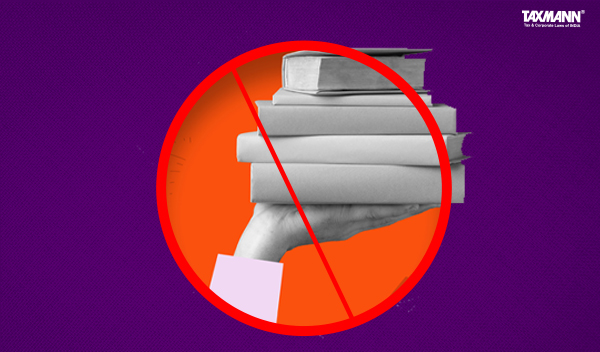No Books Maintenance Requirement for Agriculturist for Claiming Exemption u/s 10(1) | ITAT
- Blog|News|Income Tax|
- 2 Min Read
- By Taxmann
- |
- Last Updated on 6 October, 2024

Case Details: Ishwar Chander Pahuja vs. ACIT - [2024] 167 taxmann.com 41 (Delhi-Trib.)
Judiciary and Counsel Details
- S. Rifaur Rahman, Accountant Member
-
S.C. Garg, CA for the Appellant.
-
Om Parkash, Sr. DR for the Revenue.
Facts of the Case
The assessee, a director of a seed company and graduate in agricultural science claimed exemption on agricultural income under section 10(1). The Assessing Officer (AO) doubted the genuineness of the agricultural income due to the absence of claimed expenses and sale bills, mostly to related parties. The AO added the agricultural income to taxable income, citing the lack of books of account as required under section 44AA.
The assessee’s appeal to the NFAC was rejected, sustaining the AO’s order. Aggrieved by the order, an appeal was filed to the Delhi Tribunal.
ITAT Held
The Tribunal held that the AO noticed from the informations submitted by the assessee that the assessee had not claimed any expenses for earning agricultural income. The details were called for from the assessee, and after observing the submissions of the assessee, the AO rejected the submissions of the assessee with the observation that the assessee did not furnish any reasonable explanation and computation of agricultural income along with books of account maintained for the agricultural activities.
It was a fact on record that the assessee was holding agricultural land in different places, and the sales details were also submitted before AO. Also, the assessee was declaring agricultural income; it is brought to notice that income declared by the assessee for various assessment years was within the range of Rs. 33 lakhs to Rs. 38 lakh per annum. The assessee declared the income for the impugned assessment year to be around 23 lakhs without claiming any expenditure.
The AO rejected the above income and expressed doubt about agricultural income mainly because the assessee did not claim any expenditures in the return of income. Considering the regularity and consistency of declared income over the years and subsequent assessment years, the income declared by the assessee seemed to be in order. Also, the assessee was a professionally graduated in agricultural science.
Further, it was observed that assessee had not maintained any books of account as per section 44AA. The assessee’s income falls under section 10(1) and as per section 44AA, as per the provisions of the Act, who are supposed to maintain books of account does not include agriculturists. Therefore, the assessee’s case did not fall under section 44AA. It was further observed that the assessee submitted copies of bills of sale of agricultural produce to various persons, even though to the related parties.
Therefore, there was no reason to suspect the income declared by the assessee and the assessee’s appeal was allowed.
Disclaimer: The content/information published on the website is only for general information of the user and shall not be construed as legal advice. While the Taxmann has exercised reasonable efforts to ensure the veracity of information/content published, Taxmann shall be under no liability in any manner whatsoever for incorrect information, if any.

Taxmann Publications has a dedicated in-house Research & Editorial Team. This team consists of a team of Chartered Accountants, Company Secretaries, and Lawyers. This team works under the guidance and supervision of editor-in-chief Mr Rakesh Bhargava.
The Research and Editorial Team is responsible for developing reliable and accurate content for the readers. The team follows the six-sigma approach to achieve the benchmark of zero error in its publications and research platforms. The team ensures that the following publication guidelines are thoroughly followed while developing the content:
- The statutory material is obtained only from the authorized and reliable sources
- All the latest developments in the judicial and legislative fields are covered
- Prepare the analytical write-ups on current, controversial, and important issues to help the readers to understand the concept and its implications
- Every content published by Taxmann is complete, accurate and lucid
- All evidence-based statements are supported with proper reference to Section, Circular No., Notification No. or citations
- The golden rules of grammar, style and consistency are thoroughly followed
- Font and size that’s easy to read and remain consistent across all imprint and digital publications are applied



 CA | CS | CMA
CA | CS | CMA
